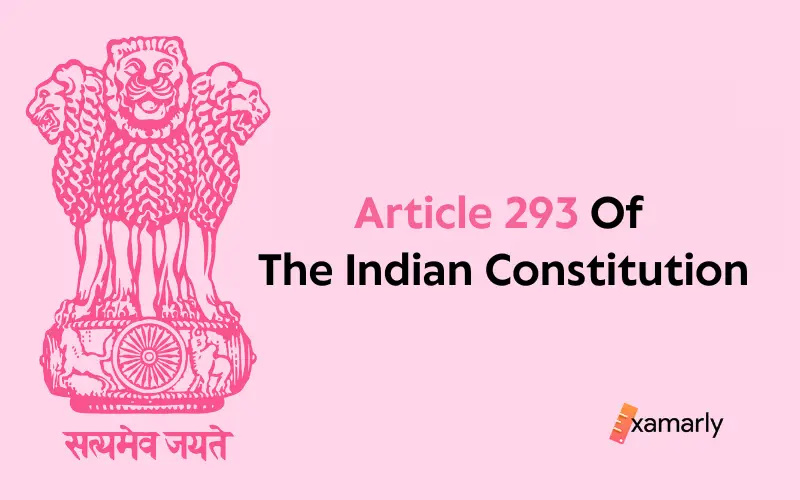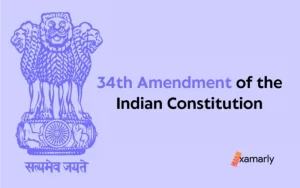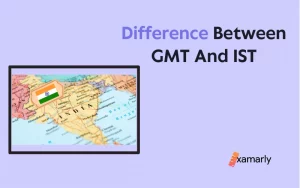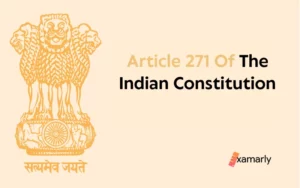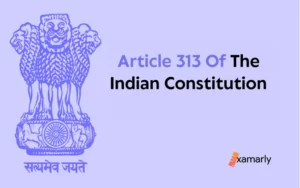An Overview
Article 293 of the Indian constitution talks about how a State can borrow money from the Consolidated Fund Of India.
It talks about such provisions that are to be taken into consideration when the union government has to lend money to the State in the hour of need.
Let us dig deep into Article 293 of the Indian Constitution and get to know in detail what is being said and done.
Article 293 Of The Indian Constitution – In Detail
We will understand Article 293 of the Indian Constitution in detail by breaking down each and every clause present in it.
Clause 1 – As it is & Explained
(1) Subject to the provisions of this article, the executive power of a State extends to borrowing within the territory of India upon the security of the Consolidated Fund of the State within such limits, if any, as may from time to time be fixed by the Legislature of such State by law and to the giving of guarantees within such limits, if any, as may be so fixed
According to clause (1) of Article 293 of the Indian Constitution, borrowing within Indian territory on the security of the state’s Consolidated Fund within such limits.
If any, as may from time to time be fixed by the Legislature of such State by law, and guaranteeing obligations within such limits, if any, as may so be fixed, are both within the executive power of a state subject to the provisions of this article.
Related – Article 206 Of The Indian Constitution
Clause 2 – As it is & Explained
(2) The Government of India may, subject to such conditions as may be laid down by or under any law made by Parliament, make loans to any State or, so long as any limits fixed under Article 292 are not exceeded, give guarantees in respect of loans raised by any State, and any sums required for the purpose of making such loans shall be charged on the Consolidated Fund of India
The second clause of Article 293 of the Indian constitution says that any sums necessary for the purpose of making such loans shall be charged on the Consolidated Fund of India, subject to such conditions as may be laid down by or under any law made by Parliament.
The Central Government may, subject to the limits fixed under Article 292, make loans to any State or give guarantees in respect of loans raised by any State, provided that the Central Government does not exceed the limits fixed under Article 292.
Clause 3 – As it is & Explained
(3) A State may not without the consent of the Government of India raise any loan if there is still outstanding any part of a loan which has been made to the State by the Government of India or by its predecessor Government, or in respect of which a guarantee has been given by the Government of India or by its predecessor Government
The third clause of Article 293 of the Indian constitution says that if any portion of a loan made to the State by the Government of India or its predecessor Government is still outstanding.
It also says that if a guarantee in respect of such a loan has been given by the Government of India or its predecessor Government, the State may not raise any loan without the consent of the Government of India.
Clause 4 – As it is & Explained
(4) A consent under clause ( 3 ) may be granted subject to such conditions, if any, as the Government of India may think fit to impose CHAPTER III PROPERTY, CONTRACTS, RIGHTS, LIABILITIES, OBLIGATIONS AND SUITS
The Government of India may impose such conditions, if any, on consent obtained under clause (3) under CHAPTER III PROPERTY, CONTRACTS, RIGHTS, LIABILITIES, OBLIGATIONS AND SUITS
Summing Up
Article 293 of the Indian Constitution pertains to the power of the Union government to borrow money. It states that the Union government may give guarantees in respect of any such borrowing.
The Union government must provide for the repayment of any money borrowed and the payment of interest on such borrowings.
This article is part of the financial provisions of the Indian Constitution, which outline the powers and responsibilities of the Union government in relation to the management of the country’s financial resources.
FAQs
The Consolidated Fund of India: What Is It?
All government earnings and other collections, such as interest and principal payments on government-issued loans, are deposited into the Consolidated Fund of India, which is managed by the Union government of India. It’s used to pay for the government’s regular operating costs, like salaries and pensions.
How do monetary contributions reach the Consolidated Fund of India?
The Consolidated Fund of India is the government’s main bank account and is where all tax, duty, fees, and other receipts are deposited. The Public Account of India and the Contingency Fund of India are two other government funds from which money can be moved into the Consolidated Fund of India.
To what end does India maintain a contingency fund?
The Union government of India sets aside money every year in the form of the Contingency Fund of India to cover any unforeseen costs that may arise. Parliament legislates its existence, and the Union government oversees its operation. The Union government may make withdrawals from the Contingency Fund without seeking parliamentary approval first but must report the actions to parliament.
Can you tell me about India’s public finances?
All revenues not deposited into the Consolidated Fund of India are held in the Public Account of India, a fund managed by the Union government. Cash is received by the government in any form, such as loans, advances, deposits, and other funds. Public Account of India funds can only be utilised for legislatively authorised initiatives, rather than general government operations.
How is India’s Central Bank’s money handled?
The Union government, with the approval of the President of India, oversees the management of the Consolidated Fund of India. The budget is a declaration of the Union government’s expected revenue and expenditures for a certain fiscal year. Before the budget can be put into action, it must be approved by Parliament.


